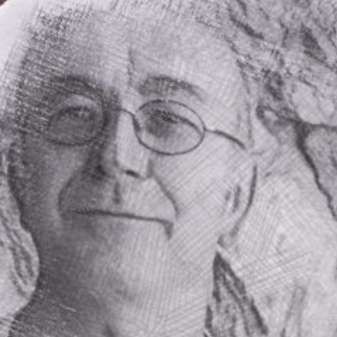Haddington’s 1815 Holy Trinity Church stands on the site of a thirteenth-century Franciscan friary. It is set back on the deceptively narrow Church Street which terminates at the Nungate Bridge, as did the dangling lives of many criminals in bygone eras. This elegantly simply venue housed an imaginative centenary celebration programme entitled “Literary Britten”. It was an entirely male event: performers, composer, poets, subject matter – including love interest.
Having greatly enjoyed Lammermuir 2012’s Master and Commander programme, I was greatly looking forward to this exploration of the written, spoken and sung word. Welcoming the audience, Lammermuir co-artistic director James Waters made special mention of tenor Robin Tritschler, standing in at very short notice for an indisposed Andrew Kennedy. As if this were not sufficiently impressive, it soon seemed clear that there can be no greater test of a singer’s diction than to alternate items with a fine-voiced actor such as Alex Jennings. Despite music’s additional demands on pitch, breathing, phrasing, balance with piano etc., I could make out every syllable (only translated items appeared in the printed programme).
The lion’s share of the evening’s verse was Auden’s, the programme opening with Britten’s 1937 setting of five poems from the 1936 collection Look, Stranger! The song cycle was entitled On This Island, and Auden later retitled his collection to match. “Let the florid music praise” opened boldly with grand, fanfare-like piano accompaniment ably supplied by Iain Burnside and, later, extended Baroque-style vocal decoration by Tritschler. The importance of dynamics really came out in “Seascape”, where it seemed simply obvious that some phrases are, as it were, born loud. Vocal range was impressive, whether ethereal head voice or sonorous lower notes. The steady, darkly plangent chords of “Nocturne” finally gave way towards the end, allowing Burnside’s right hand to sing melodically with lovely tone. Tritschler alternated effectively between peaceful colours and more menacing, edgy ones which seem to inform the text and music of truly gripping nocturnes.
A similar alternation featured in Jennings’ reading of Auden’s 1935 Night Mail, where brisk, insistent locomotion yielded to the vulnerable reflection that all await mail with such apprehension, “for who can bear to feel himself forgotten”. The “Nocturne”’s element of hinted menace was mirrored nicely in the beautifully portrayed injured love of “Dear, though the night is gone” (1936) and also, in the second half, “Lullaby” (1937), which opens with the doubly charged lines “Lay your sleeping head, my love, Human on my faithless arm”.
I felt the presence of a more mature Britten in his 1958 Sechs Hölderlin Fragmente. The partnership between voice and piano seemed more equal, the harmonic writing – already tangential in the earlier works – seemed capable of genuinely disorienting ambiguity, while still remaining tonal. This was at its best in the unsettling “Hälfte des Lebens” (“Half of Life”). Burnside’s piano, having been wonderfully adrift, upped the ante in the second stanza, as Tritschler’s fine, high tessitura explored preoccupations with death featured earlier in the programme.
The evening’s lightest moment opened the second half: Jennings’ excellent reading of Auden’s 1938 Tell me the truth about love. There was more mirth to follow in two of Auden’s “newsy” letters to Britten, in which Jennings put aside the declarative voice of omniscient narrator, and adopted Auden’s own voice. I really enjoyed this distinction as it highlighted the paradox that a poet’s words in a letter remain private, even when read aloud in public, while his words in verse seem somehow to belong to us all.
I felt deeply indebted to the performers for a mini-epiphany regarding Britten and the art of accompaniment. This was certainly the case harmonically in “Hälfte des Lebens” but seemed also the case metrically in the setting of the Irish folk song “At the mid hour of night”. The protagonist hopes to meet a now departed lover in musical communion, despite their residence in separate worlds. This haunting divide came across with powerful understatement in the piano’s “inability” to join the voice in a simple triple meter. I felt in that operatic moment that voice and accompaniment were not leader and follower, but two equal voyagers; sharing a journey, yet retaining their individuality. This was highlighted by the supreme musicianship of Tritschler and Burnside who, presumably with limited rehearsal, seemed able to communicate entirely by listening and feeling.
This was such a well conceived and performed programme that it would be nice to think that the performers might get further mileage from it. If it turns out to be a one-off, then I was very glad to have been there.


